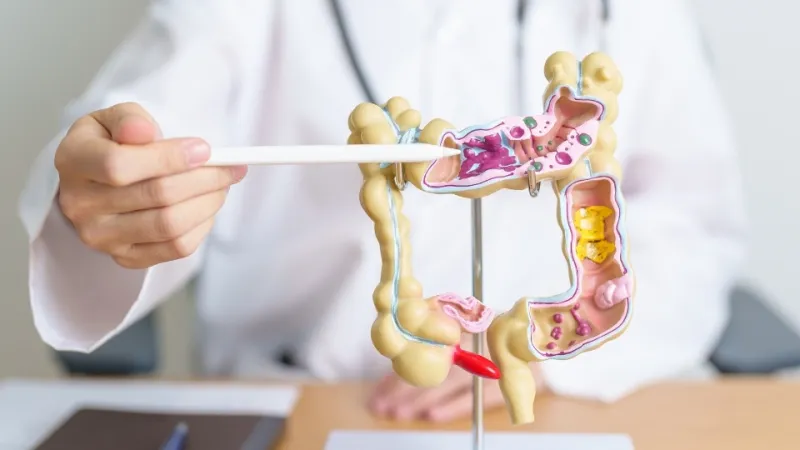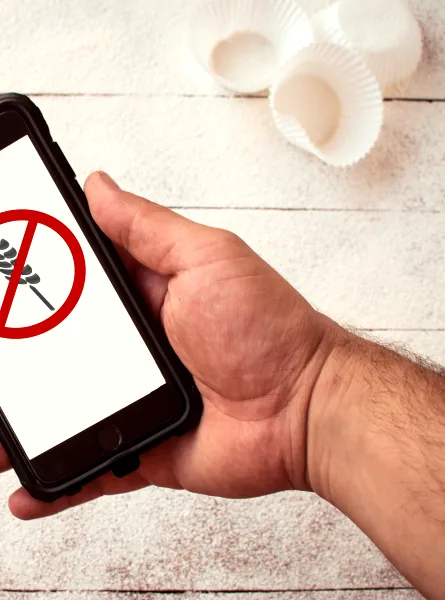
The low FODMAP diet is an evidence-based approach to managing symptoms of irritable bowel syndrome (IBS). This dietary plan can significantly reduce bloating, abdominal pain, and digestive distress, improving your overall quality of life, but its complexity requires the guidance of a professional dietitian. Here’s why working with a dietitian is essential for successfully following the low-FODMAP diet.
What are FODMAPs?
FODMAPs (Fermentable Oligosaccharides, Disaccharides, Monosaccharides, and Polyols) are short-chain carbohydrates that some people find difficult to digest. When poorly absorbed, they ferment in the digestive tract, causing gas, bloating, and discomfort. Eliminating these foods can provide relief for people with IBS, but determining which foods are problematic requires a structured, phased approach (1).
The Phases of a Low FODMAP Diet for IBS Management
A dietitian will guide you through the three essential phases of the low FODMAP diet:
1. FODMAP Elimination Phase
During this initial phase, high-FODMAP foods are eliminated for a short period (typically 2-4 weeks) (1). While this phase can lead to rapid symptom relief, it is crucial to ensure nutritional balance, which a dietitian can help manage.
Additionally, a dietitian will assist in adapting low-FODMAP menus, offering suitable substitutions for high-FODMAP foods, and helping with meal planning and organization. They will also track your symptoms of IBS and guide you in observing changes, ensuring the diet is effective and tailored to your needs. Our team even created a Low-FODMAP Recipe Bank, filled with delicious, gut-friendly meal ideas that make following the diet easier and more enjoyable.
2. Reintroduction and Tolerance Testing Phase
After the elimination phase, foods are systematically reintroduced to identify which FODMAPs trigger symptoms (1). This phase requires careful tracking of food intake and symptoms—a process made easier with a dietitian’s guidance.
A dietitian will also help interpret the results of tolerance tests, ensuring you understand how different FODMAPs affect your symptoms and bowel habits. This allows for a more personalized approach, helping to reintroduce tolerated foods while avoiding those that cause discomfort.
3. Personalization Phase
The goal is to create a long-term, sustainable diet that minimizes IBS symptoms while including as many foods as possible (1). A dietitian will help tailor this phase to your individual tolerance levels.
Why You Need a Registered Dietitian’s Expertise
The low FODMAP diet is not meant to be followed long-term without supervision. A dietitian ensures that:
1. You avoid nutritional deficiencies
Eliminating several food groups can put you at risk of missing key nutrients like fiber, calcium, and vitamins. A dietitian will evaluate your food records to ensure you're getting the nutrients you need and will recommend suitable alternatives or supplements.
2. Your diet is well-balanced
A dietitian helps plan meals that are both nutritionally complete and satisfying, so you can stay committed to the diet without feeling deprived. By ensuring that your dietary needs are met, a dietitian also supports your mental health, as proper nutrition and avoiding feelings of deprivation can reduce stress and anxiety associated with managing a restrictive diet.
3. The process is personalized
Everyone’s tolerance to FODMAPs varies. A dietitian will help you identify your triggers and adjust your diet based on your unique responses, rather than relying on a one-size-fits-all approach.
4. You maintain gut health
The low FODMAP diet, especially the elimination phase, can reduce your intake of prebiotics that support healthy gut bacteria (2). A dietitian will recommend ways to reintroduce beneficial foods to maintain a healthy gut microbiome.
5. You avoid unnecessary restrictions
Without professional guidance, many people eliminate too many foods or continue the strict elimination phase for too long, leading to frustration and poor adherence (1). A dietitian will guide you through the proper phases to ensure long-term success.
Get Professional Help with Your Low FODMAP Diet
If you’re struggling with IBS, a low FODMAP diet could be the solution. However, without a dietitian’s guidance, it’s easy to feel overwhelmed and make mistakes that could hinder your progress. Our team of professional dietitians can help you navigate each step of the low FODMAP diet, ensuring it’s effective and sustainable for you. Contact our registered dietitian nutritionists today to start your personalized low FODMAP journey!
References
- Lacy BE, Pimentel M, Brenner DM, et al. ACG Clinical Guideline: Management of Irritable Bowel Syndrome. Am J Gastroenterol. 2021;116(1):17-44. doi:10.14309/ajg.0000000000001036
- Cozma-Petruţ A, Loghin F, Miere D, Dumitraşcu DL. Diet in irritable bowel syndrome: What to recommend, not what to forbid to patients!. World J Gastroenterol. 2017;23(21):3771-3783. doi:10.3748/wjg.v23.i21.3771





